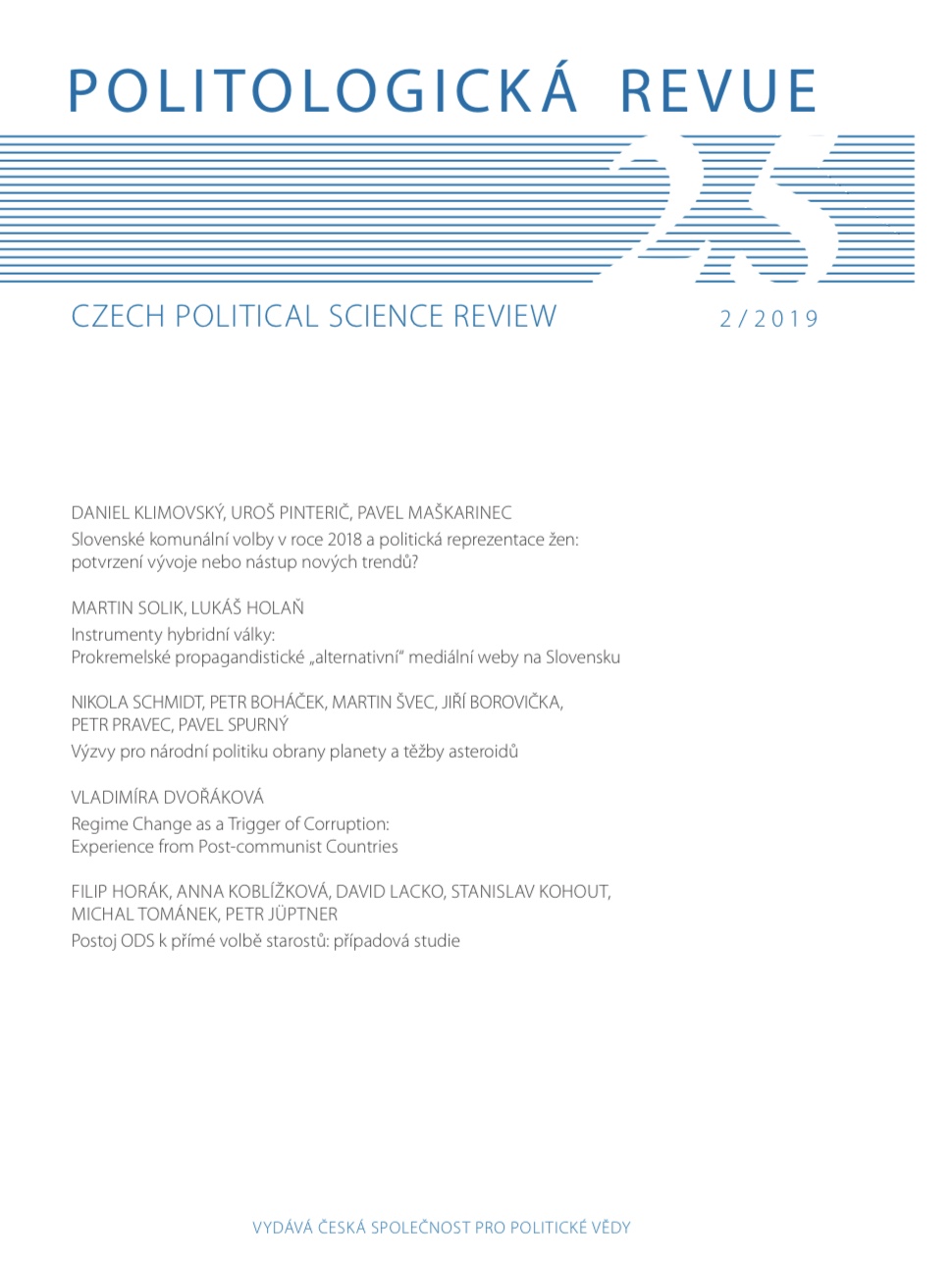Regime Change as a Trigger of Corruption
Regime Change as a Trigger of Corruption
Experience from Post-communist Countries
Author(s): Vladimira DvorakovaSubject(s): Politics / Political Sciences, History
Published by: Česká společnost pro politické vědy
Keywords: corruption; post-communism; state-building; transformation; political actors; economic actors
Summary/Abstract: The fall of communism initiated the deepest social, economic, and political changes of modern history. These changes installed new regimes which, irrespective of their current character, are infested by corruption. Why and how did this happen? Are we witnessing a continuity of the communist past or is it a new phenomenon? Is the current corruption a product of former clientelistic networks which adapted easily to the new conditions while using a persisting political, legal, and economic culture? Contrarily, is corruption in the post-communist countries a new phenomenon resulting from a unique process of transformation? The answer includes and combines both alternatives. The roots of systemic corruption are to be found in a mutual interaction of elements, both from the past and brought into existence by this radical change, described herein: the social structure of the communist societies, which lacked capitalist structure (capital, “capitalists”); the character of the communist state, which was not substantially rebuilt during the transformation and was taken over by new/old political actors; economic transformation, which enabled those who controlled the state to form an economic society (economic actors, economic regulations), having at their disposal and using for this goal a huge amount of the state-owned property during the process of privatization. In summary, it was the character of the (post)communist state and the social structure of the (post)communist societies which influenced the shaping of basic institutional settings and the formation of key political and economic actors. Together with the huge resources available through the privatization of state-owned property and the historical cultural approaches regarding the maintenance of social, political, and economic positions, there was almost no chance of avoiding corruption and its metamorphosis into a systemic form.
Journal: Politologická revue
- Issue Year: 25/2019
- Issue No: 2
- Page Range: 101-126
- Page Count: 26
- Language: English
- Content File-PDF

